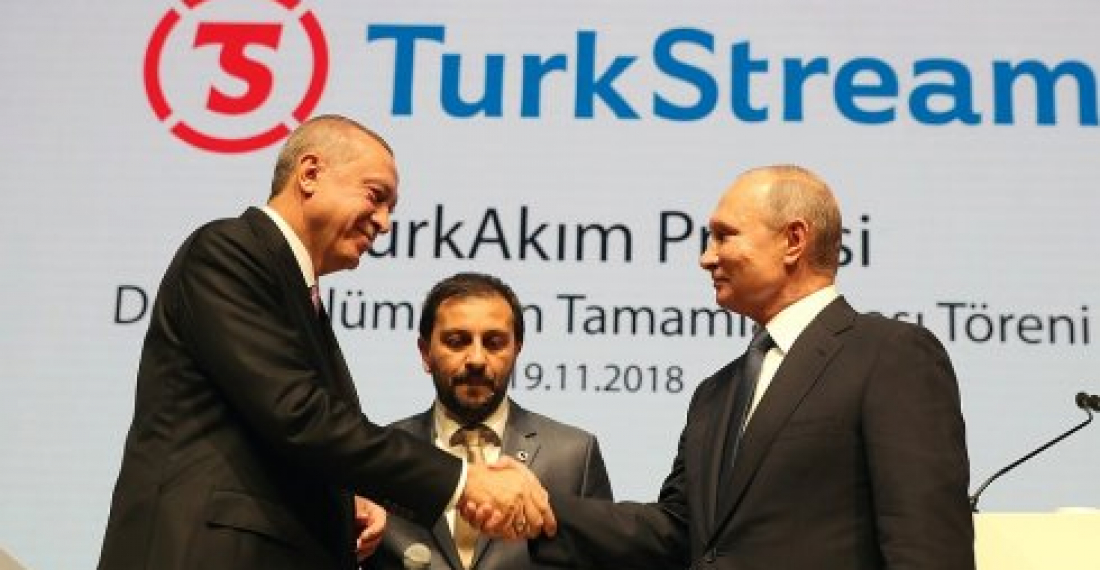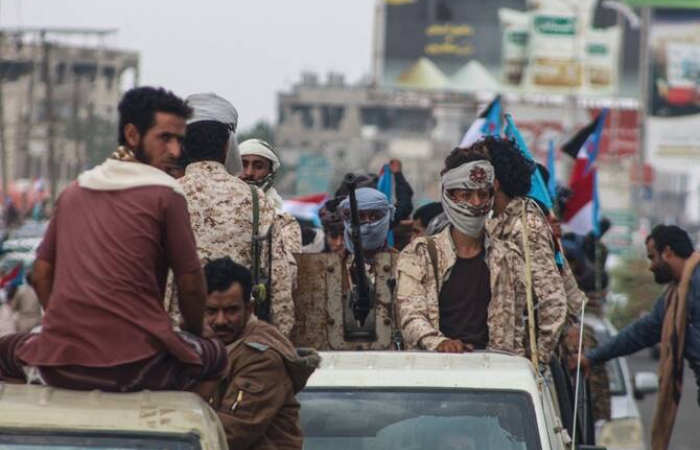Turkish President Recep Tayyip Erdogan and his Russian counterpart Vladimir Putin on Monday (19 November) attended the completion ceremony of the offshore section of the Turkish Stream Project (TurkStream).
"For us, Russia is a friend we can have long term cooperation with and is an important natural gas supplier," the Turkish president said, speaking at the ceremony. He said the project is one of the outcomes of a "tested friendship" throughout many years and said Turkey has never judged its relations with Russia over "impositions of other countries.""I believe our solidarity with Putin and the Russian people will be foreshadowing of bigger projects," Erdogan said.
The project has many advantages not only for Turkey, but also for the region and neighbouring countries, he said.
"Turkish Stream is a project of historic proportions for our bilateral relations and for energy geopolitics in our region, on which we have exerted great efforts with our Russian friends," Erdogan said.
Putin, for his part, said the Turkish president had proposed to name the pipeline "Turkish Stream" and added that the most difficult part of the project had been completed.
Such an important project would not be realised unless parties had confidence, the Russian president said. He thanked Erdoğan for his "political will and courage" and the Turkish Parliament for immediate permission for Turkish Stream.
TurkStream and the Akkuyu Nuclear Power Plant will be symbols of the development of relations between Turkey and Russia, Putin said, noting that his country wants to reach a $100 billion bilateral trade volume with Turkey.
Gazprom began construction of the offshore section of the Turkish Stream in May 2017. The Turkish Stream project envisages the construction of two pipelines, each 939 kilometers long.
The first line will be designed for the Turkish market and will meet 35 percent of Turkey's natural gas consumption alone. The second is for gas supply to countries in southern and southeastern Europe. The capacity of each line is 15.75 billion cubic meters of gas per year. The first deliveries are scheduled for the end of 2019.
source: commonspace.eu with Hurriyet Daily News and agencies






